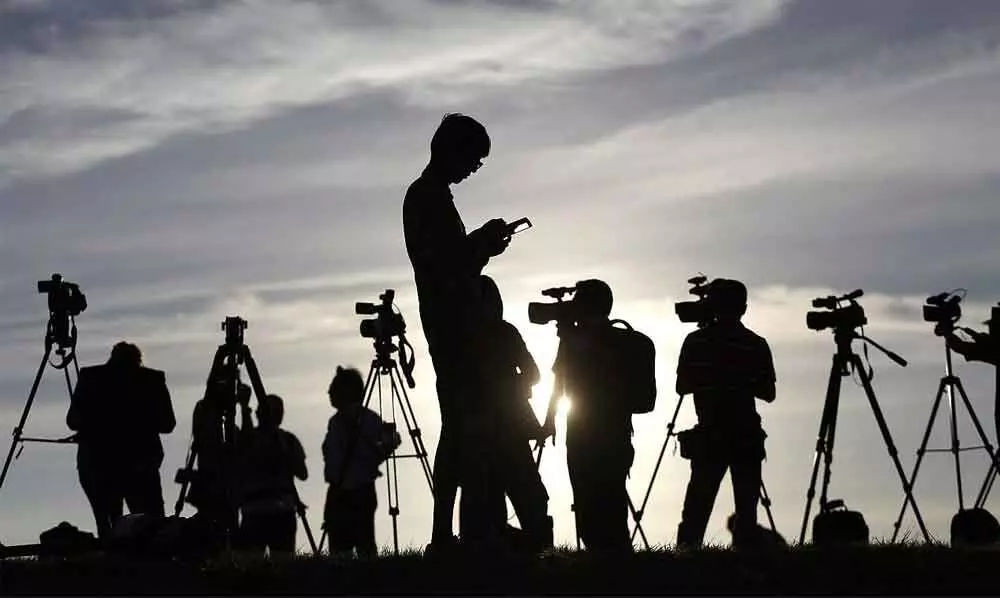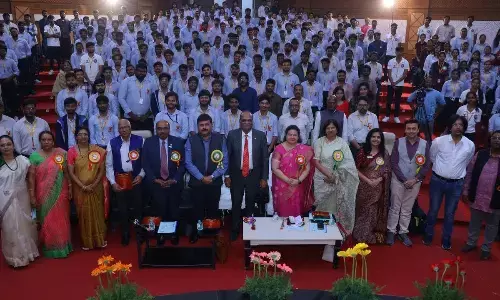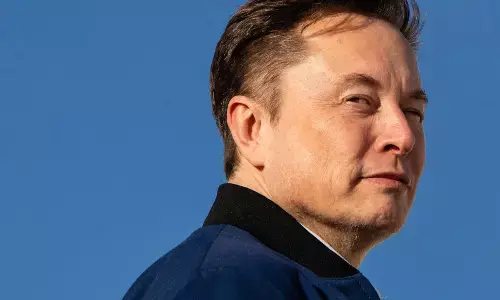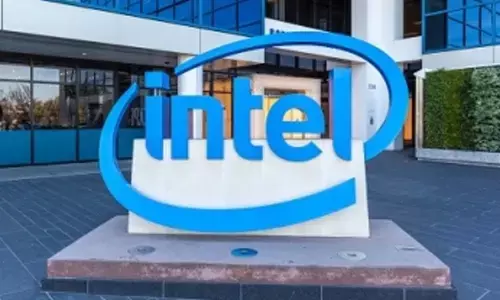Watchdog stops barking, wags its tail instead!

Watchdog stops barking, wags its tail instead!
Media is supposed to play an important role in society not only as an instrument to provide source of information, but also as a "watchdog" or scrutiniser.
The media has fallen prey to the nuanced efforts made by successive governments to throttle their independence. Common methods include government-backed ownership changes, regulatory and financial pressure, and public denunciations of honest journalists. The governments have also offered proactive support to friendly outlets through measures such as lucrative contracts, advertisements, paid news and preferential access to State information. The goal is to make the press serve those in power rather than the public. Days when media used to disseminate objective truth is over and lot of malice has taken its place. The only accountability is to serve the regime
Media is supposed to play an important role in society not only as an instrument to provide source of information, but also as a "watchdog" or scrutiniser. It is supposed to be free to select the stories they consider important or interesting. As watchdog, it is their role and responsibility to bring to light the omissions and commissions of the government.
There are any number of examples where the media played exemplary roles. If you look at the international scenario, the Watergate scandal came to light on June 17,1972 which changed American politics where people started questioning their leaders. Several burglars were arrested in the office of the Democratic National Committee, located in the Watergate complex of buildings in Washington, D.C. They were connected to the then President Richard Nixon's re-election campaign. Washington Post reporters Bob Woodward and Carl Bernstein revealed his role in the conspiracy, Nixon resigned on August 9, 1974.
In India, former Chief Minister of Maharashtra, A R Antulay was forced to quit from his post by the then Prime Minister Indira Gandhi after Parliament was paralysed for days over the 'cements scandal' in the State. It was the classic journalistic coup, swift, bold and utterly bloodless and the Indian Express came out not just with breaking news but series of stories which exposed how political parties and Chief Ministers resort to arm-twisting and fund collection.
In undivided Andhra Pradesh, the then Chief Minister N Janardhana Reddy had to call it quits after the State High Court indicted him for nepotism and favouritism in the college capitation fee controversy. He initially declared that there was no need for him to resign but the series of exposures by media and the Supreme Court verdict forced him to quit despite having mobilised the support of 123 MLAs.
In 1991, another scandal in regard to emergency reconstruction programme in Andhra Pradesh also came to light. I myself had gone around the State and had come up with series of stories which rocked the State Assembly then.
Then we have the famous Bofors scandal. It was one of the major weapons contract political scandal that came to light. The Rs 1,437-crore deal between India and the Swedish arms manufacturer AB Bofors for the supply of 400, 155mm Howitzer guns for the Indian Army was entered on March 24, 1986. On April 16, 1987, The Swedish Radio claimed that the company had paid bribes to top Indian politicians and defence personnel. On April 20, 1987 Rajiv Gandhi told the Lok Sabha that no kickbacks were paid and no middlemen were involved. The allegation was that Rs 64 crore was paid as bribe by India. A Joint Parliamentary Committee was formed to probe and the Congress got defeated in 1989 elections. The scandal came to light due to excellent work in investigative journalism carried out by the Reuters news based on the revelation of Swedish radio's breaking news, and then by the Hindu newspaper journalist Chitra Subramaniam.
Another scandal which came to be known as adventure capitalism was related to setting up a Rs 5,800 crore Volkswagen car unit in Andhra Pradesh. The TDP government had initiated the moves and while the process was on, it went out of power and the successor Congress government under the leadership of Y S Rajasekhar Reddy in its hurry to get the deal through, close to the port city of Visakhapatnam, used different means to outwit its neighbouring States like Tamil Nadu and Maharashtra. The media exposure brought to light that it was a sex and bribery scandal involving number of senior executives in Europe and Volkswagen's former Indian representative Helmuth Schuster who reportedly connived with top political leaders in Andhra Pradesh government and took it for a ride. Schuster asked for and got Euros 2 million (Rs 11 crore) of the proposed Euros 5 million from the State government. This was an instalment of its share of equity in a specially floated joint venture, VashishtaWahan, which is apparently intended to set up the car factory.
But the situation has now changed and over the years, the press has been under attack. Its freedom has been eroded in a systematic manner. Attempts to silence critical media voices and strengthen the outlets that serve up favourable coverage have become a near global phenomenon, and it is more clearly visible in two Telugu States. Of course, the situation at the level of national media is no better.
Large segments of the population are no longer receiving unbiased news and information. The media has fallen prey to the nuanced efforts made by successive governments to throttle their independence. Common methods include government-backed ownership changes, regulatory and financial pressure, and public denunciations of honest journalists.
The governments have also offered proactive support to friendly outlets through measures such as lucrative contracts, advertisements, paid news and preferential access to State information. The goal is to make the press serve those in power rather than the public. Days when media used to disseminate objective truth is over and lot of malice has taken its place. The only accountability is to serve the regime.
News has lost it worthiness and the priorities are shifted from people to serve the regime that controls and sets the agenda, all in the name of freedom of the press. Indian media seems to be writing a new history which has killed critical journalism. What the people heading the regime fail to realise is that this nakedness of representing regimes voice only is killing democracy in India.
News anchors whether it is electronic or print media have become judges and pass their judgment shamelessly without any ethical consideration. They have lost the initiative to question the authorities and the government and are confining themselves to press notes.
Some media houses have sold their critical power to separate its truth from their errors and this has resulted in fake news and hatred against opponents becoming the latest trend. Media houses and journalists are being consistently pushed to behave in a certain manner or else face the wrath of the government. They do not even hesitate to indulge in arm twisting methods.
Genuine critics of the regime's policy are categorised as anti- government if not anti-national. There is a constant exercise of silencing the unpleasant voice. If one agrees for uncritical admiration of the government of the day, you are favoured with many things and tailor-made information is supplied in tons. If one tries to be even little critical, then he is considered to be enemy. The concept of quid pro quo is being witnessed in the world of media too. Another threat to democracy is from social media which is also being used more to spread hatred.
Media which should represent people is fast forgetting its responsibility and does not feel that it has any accountability to tell people the truth. All this has turned media into a game of circus to divert the people. If the key pillar of democracy does not realise this and if it still fails to make efforts to come out of these machinations by the rulers, it would be writing a wrong history. It's high time media started questioning their leaders.











